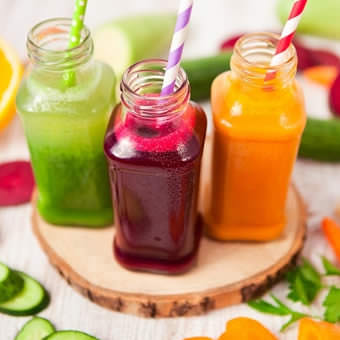In today's conscientious consumer landscape, the demand for morally sourced and lasting products has actually surged. Private label food manufacturers have become innovators in this domain name, commonly collaborating with contract food manufacturers to spearhead sustainability and also responsible sourcing campaigns. With a tenacious commitment to environmental principles, personal label brand names have actually made it their objective to deliver lasting, premium options to consumers.
Private Label Food Manufacturers
In the last few years, private label food manufacturers, also called own brands or store brand names, have actually witnessed an amazing rise in appeal. These suppliers generate items marketed under the logo of a store, grocer, or exclusive entity. What collections private-label products apart is their ability to use competitive pricing without jeopardizing on quality.
Contract Food Manufacturers
Numerous private-label food makers join pressures with contract producers to create their product. Contract food makers are specialists in producing food for private tags. This tactical collaboration permits private label firms to use the competence, sources, as well as specialized food production facilities of their collaborators.

Sustainability at the Core
Private label food manufacturers employ numerous approaches to improve sustainability within their supply networks:
Moral Sourcing:
Personal label companies are significantly devoted to sourcing ingredients according to moral and fair trade standards. This entails ensuring that producers and employees of resources, such as coffee beans, spices, or chocolate, get fair settlement for their efforts.
Neighborhood Sourcing:
Prioritizing regional sourcing of ingredients is another trademark of private-label food manufacturers. This not only decreases the carbon footprint connected with transport yet additionally supports local farmers as well as communities.
Organic Ingredients:
With the health food market increasing, private tags are responding by including natural components right into their line of product. Organic farming practices prioritize dirt health while avoiding artificial chemicals and plant foods.
Sustainable Fish and shellfish:
Private Label Food Manufacturers are thorough in guaranteeing that the seafood they make use of is sustainably harvested, adhering to standards established by organizations like the Marine Stewardship Council, which advertises responsible angling.
Lowered Food Waste:
Personal label firms are actively servicing minimizing food waste by carrying out efficient manufacturing procedures and establishing products with longer life span. Some brands are additionally partnering with food rescue companies to give away excess food to those in demand.
Eco-Friendly Product Packaging as well as Campaigns
Sustainability efforts by private-label food producers prolong past sourcing active ingredients to encompass packaging as well as environmentally friendly efforts:
Sustainable Packaging:
Personal label brand names have actually embraced eco-friendly product packaging choices, consisting of recyclable, naturally degradable, or compostable materials. Upgrading packaging to minimize excess product and reduce environmental effect is a leading priority.
Waste Decrease:
To lessen wastage, private-label food makers enhance product sizes, reduce excess product packaging, and explore cutting-edge packaging services. Some brand names also motivate consumers to join reusing programs.
Power Efficiency:
Many personal label makers are purchasing more energy-efficient production plants, reducing water usage, and embracing renewable energy resources to better reduce their ecological footprint.
Carbon Neutral Initiatives:
Some private brand food suppliers are taking enthusiastic steps to attain carbon nonpartisanship by offsetting their greenhouse gas exhausts through reforestation tasks as well as renewable energy credits.
Obstacles and the Roadway Ahead
In spite of the significant strides made in sustainability and accountable sourcing, private-label food producers deal with challenges. Stabilizing sustainability with cost-effectiveness can be a fragile act, sometimes calling for compromises on sustainable components or the exploration of eco-friendly alternatives.
Nonetheless, the future of private-label food manufacturing holds great assurance. As customer understanding and also demand for lasting items continue to rise, private-label brands and their agreement food manufacturing companions are likely to magnify their efforts. Collaboration with distributors as well as financial investment in sustainable technical developments and openness will be critical fit a lasting future for the market.
Frequently Asked Concerns
Q1: What are private label food manufacturers?
Private label food manufacturers create goods offered under the logo of a store, grocer, or personal entity. They supply competitively priced items without jeopardizing on high quality.

Q2: Just how do private label food manufacturers advertise sustainability?
Private label food manufacturers promote sustainability with moral sourcing, local active ingredient procurement, the use of organic ingredients, lasting seafood techniques, and also efforts to minimize food waste.
Q3: What environment-friendly packaging choices do exclusive label brand names use?
Personal label brands embrace environmentally friendly product packaging options such as recyclable, eco-friendly, or compostable products. They also revamp packaging to decrease excess product as well as minimize ecological effect.
Q4: What tests do private label food manufacturers deal with in sustainability initiatives?
Stabilizing sustainability with cost-effectiveness is a major obstacle for private label food manufacturers. This may need compromises on sustainable active ingredients or the expedition of eco-friendly choices.
Conclusion
Private label food manufacturers go to the forefront of the sustainability and responsible sourcing motion within the food industry. Their dedication to honest sourcing, local procurement, organic active ingredients, and sustainable methods, as well as halal food manufacturers their commitment to eco-friendly packaging and waste reduction efforts, demonstrate their resolution to meet the demands these days's eco-conscious consumers.
In spite of the difficulties they face, private label food manufacturers are positioned for an appealing future. With customers significantly focusing on sustainability, the market is most likely to witness also greater cooperation with distributors, financial investment in lasting modern technologies, and also a commitment to transparency. As we progress, private label food manufacturers will certainly continue to play a vital role in shaping a much more sustainable and moral food landscape for all.